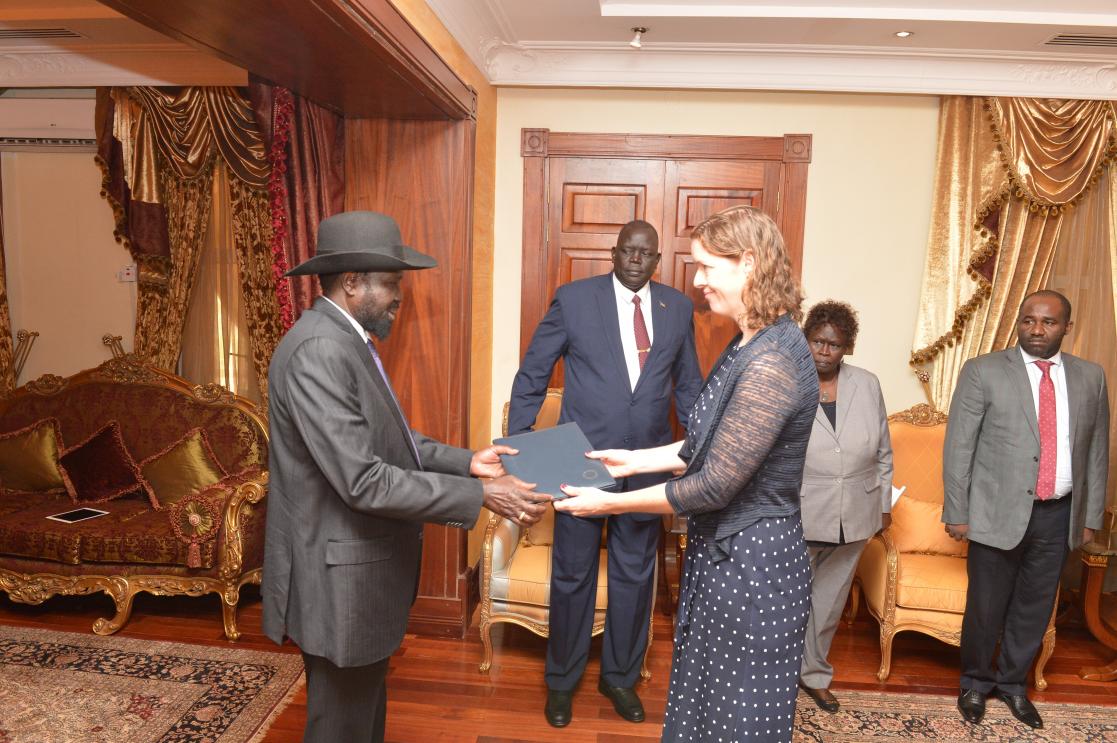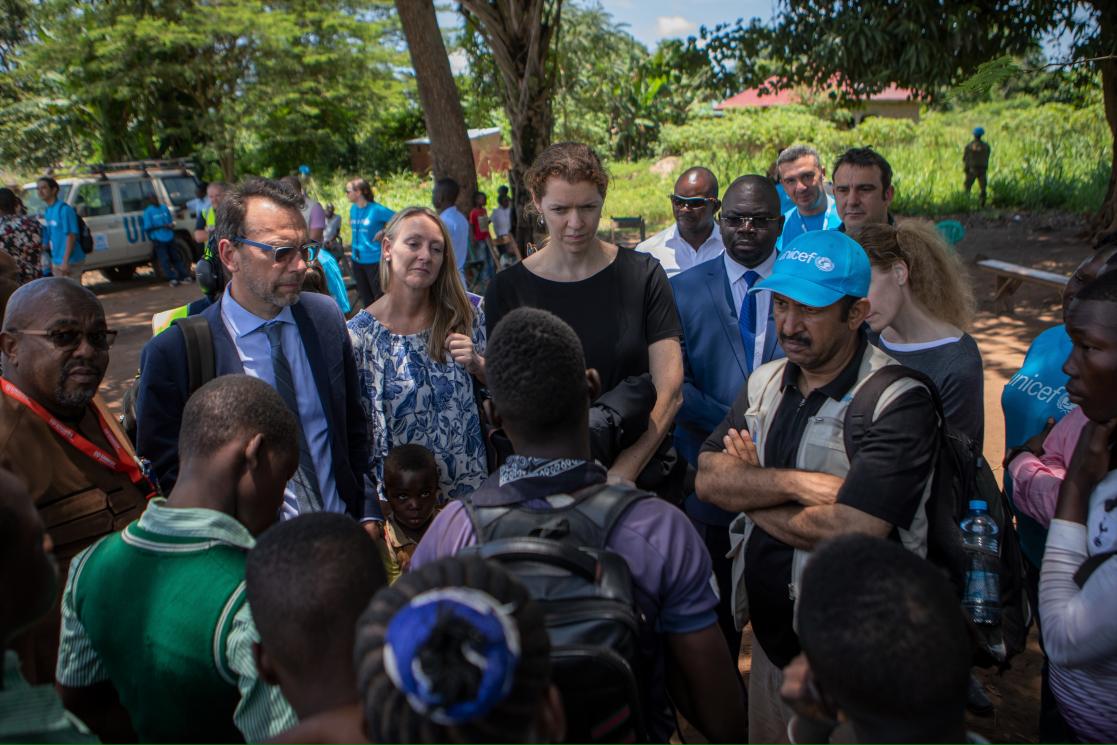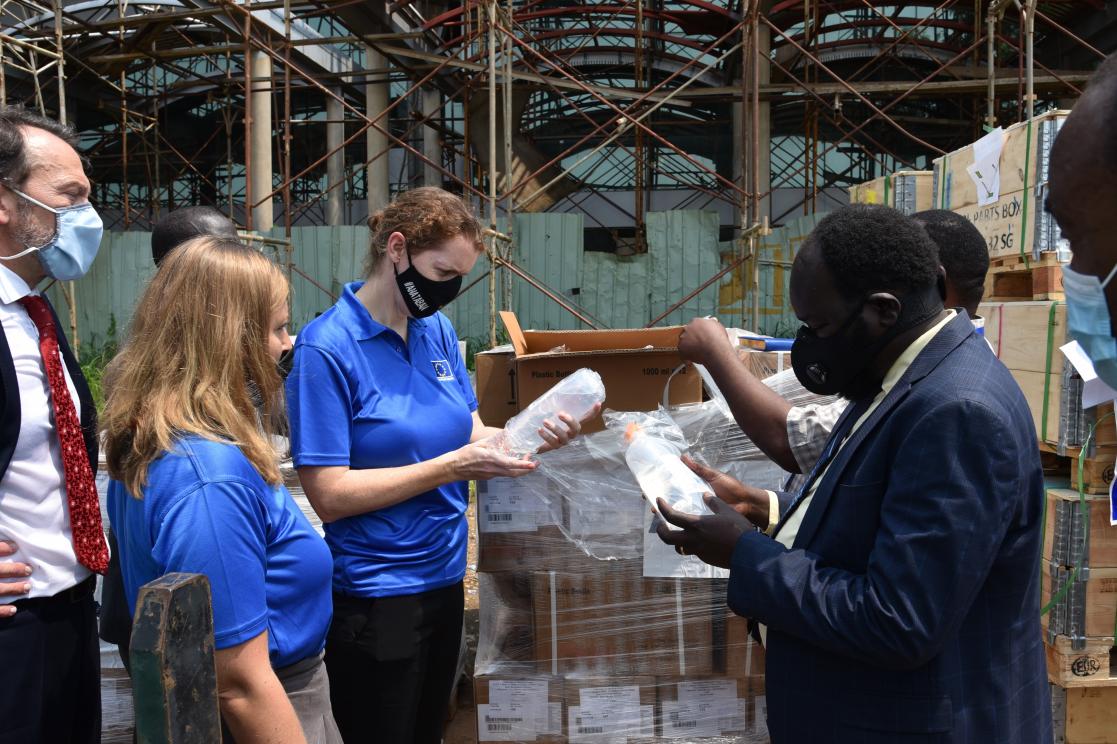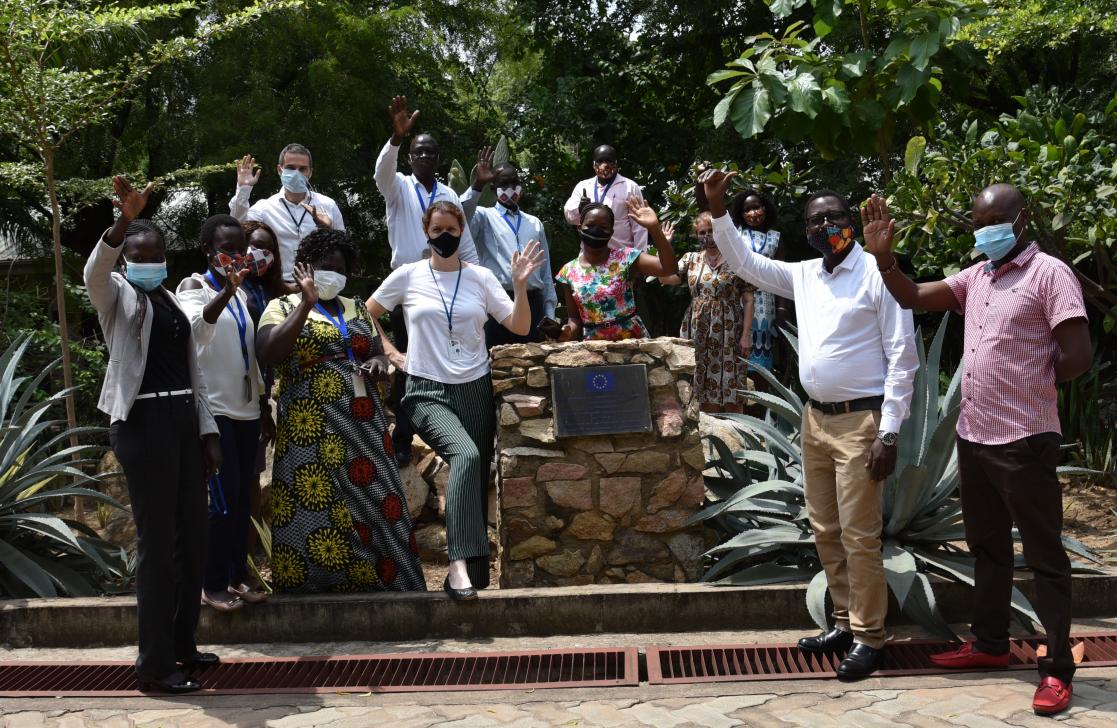Prosperous South Sudan is achievable - Outgoing EU Ambassador Dr Sinead Walsh

Ambassador Dr Sinead Walsh welcoming guests for International Human Rights Day celebration, 2019 at the EU Delegation in Juba.
As her tenure in South Sudan ends in August and will take up another assignment in the Irish Department of Foreign Affairs, the European Union Ambassador to South Sudan sat down with The Dawn Newspaper’s Denis Ejulu to digest her time in the new nation. In the excerpt below, Dr Sinead Walsh shares her hopes for South Sudan.
1. The Dawn: When were you posted to South Sudan?
SW: I was posted as EU Ambassador to South Sudan in September 2018, just when the peace agreement was being signed. This was very good timing because it meant that we could focus on sustaining peace and investing in development.
2. The Dawn: What was your impression of South Sudan when you arrived?
SW: Actually, my posting as EU ambassador was not my first time in South Sudan. I worked in Yirol in 2005 and 2006. That was also just after the signing of the Comprehensive Peace Agreement (CPA) and there was a lot of hope. My first memory back then was of goats on the runway when the aeroplane was trying to land! My impression was of a country with a lot of space and potential for agriculture and other activities and people who were eager for a new future. I have to say this was similar in 2018 when yet another peace agreement had been signed. I had the impression when I got to Juba that people were tired of war and wanted to attain the promise of a peaceful, free and prosperous South Sudan that they had fought so hard for. This is still my hope for the people of South Sudan and it is achievable.
3. The Dawn: How has been your experience working in South Sudan?
SW: It has been very good. I have been very impressed with many of the South Sudanese people that I have met - civil society activists, media, reformers within government and business people. People have been through a lot but they are still fighting to turn a page in South Sudan's short history and this is what EU wants to support. I have also enjoyed travelling around the country. I have been to Wau, Rumbek, Kuacjok, Aweil, Bentiu, Yei, Yambio, Kuron, Bor, Akobo, Maridi and Abyei and I might be missing a few. These is a fascinating diversity of people in South Sudan and this is a real strength.

President Salva Kiir receiving Ambassador Dr Sinead Walsh's credentials at J1 in 2018.
4. The Dawn: Tell us how your working relations with the government have been.
SW: I think they have been constructive and frank. We certainly do not always agree, which is common in the diplomatic world, but in general, I have found that I can have open conversations with my government counterparts, which is the key starting point for a relationship. There are many things the EU would like to see the Government of South Sudan do, and many of these are listed in the peace agreement. For example, the financial and economic reforms in Chapter 4 and the creation of Transitional Justice institutions in Chapter 5. We would like to support the government in these areas once they begin to implement them.
5. The Dawn: What achievements has your leadership registered in South Sudan?
SW: I think the EU has become more visible; we have increased our public profile since the signature of the peace agreement in 2018 opened up spaces for us to do more development work. I think we have lobbied and supported the parties to make some progress in the peace agreement. We have also became more strategic about our development cooperation profile with a longer-term perspective. For instance, about half of our investment is in rural development and agriculture and we have built roads and bridges like Kuacjok Bridge in Warrap State that are critical for people's livelihoods. Finally, along with our colleagues in the EU Humanitarian Office ECHO, we have responded strongly to the fight against COVID19 and I have engaged a lot personally on this as I had experience with the Ebola crisis in West Africa.

Ambassador Sinead Walsh (in black top) with other diplomats listening to school children in Yambio during a field mission in 2019 (UNICEF SS)
6. The Dawn: Did EU play a significant role in conflict resolution in South Sudan?
SW: Yes, I think we have been a consistent critical friend to the country. We speak out openly about our values, especially regarding human rights. When we do not agree with what the government or parties do, we tell them and we try to offer our support. That is on the political side but our development and humanitarian work is also critical for conflict resolution. To me, the key to long-term conflict resolution in South Sudan is a lot to do with two words: education and jobs, in addition to the political reconciliation and good governance, which are of course critical.
7. The Dawn: In what state are you leaving South Sudan; what does the future hold for this country?
SW: I think there has definitely been progress in the peace agreement, although it is slower than hoped. However, we are very concerned as EU about sub-national violence in Jonglei and other areas, including sexual and gender-based violence. We need to remember that the peace process is not just about armed conflict. Any conflict that kills, injures or displaces South Sudanese is unacceptable.
Having said that, overall I am hopeful because South Sudan has the raw materials: people who want peace and reforms, who want to do things differently, to build a nation that protects human rights and in which people can take advantage of opportunities.

Ambassador Sinead Walsh with other diplomats and government officials inspecting EU HAB flight items at Juba Airport on 29 July.
8. The Dawn: Do you have any regrets?
SW: There are still many things I would have wanted to do but COVID-19, over the past few months, has hindered these plans. I would have liked South Sudan to have moved faster on some of the reforms in the peace agreement so that we could have come in to support. I still very much hope that that will happen. The new Public Financial Management reform process that the Government has begun with support from Ebony Centre and others is promising.
9. The Dawn: You are leaving at a time when South Sudan is under pressure from the international community, do you see relations between Juba and Brussels improving?
SW: I hope so but I think it depends on how strongly the government works to achieve a total ceasefire at sub-national as well as national levels, including violence with inter-communal aspects- and to what extent; they really push the reform agenda in the coming months. It is difficult for us to mobilise resources and support in Brussels for South Sudan if people there think that there are high levels of corruption and recurrent cycles of conflict. The pessimists must be proven wrong and I think there is the will among many in South Sudan to do things differently. We are willing to meet the government half way but difficult decisions will need to be made and then implemented.
10. The Dawn: As you prepare to leave what should your successor tackle?
SW: I hope he will be in a position to support the government's reform agenda and formation of Transitional Justice institutions, as well as working with our Member States to create a long-term strategy to support the country. All this will require sufficient political will and implementation by Government and I very much hope to see this.

Ambassador Dr Sinead Walsh posing for goodbye photo with her staff in Juba in August 2020.
###
